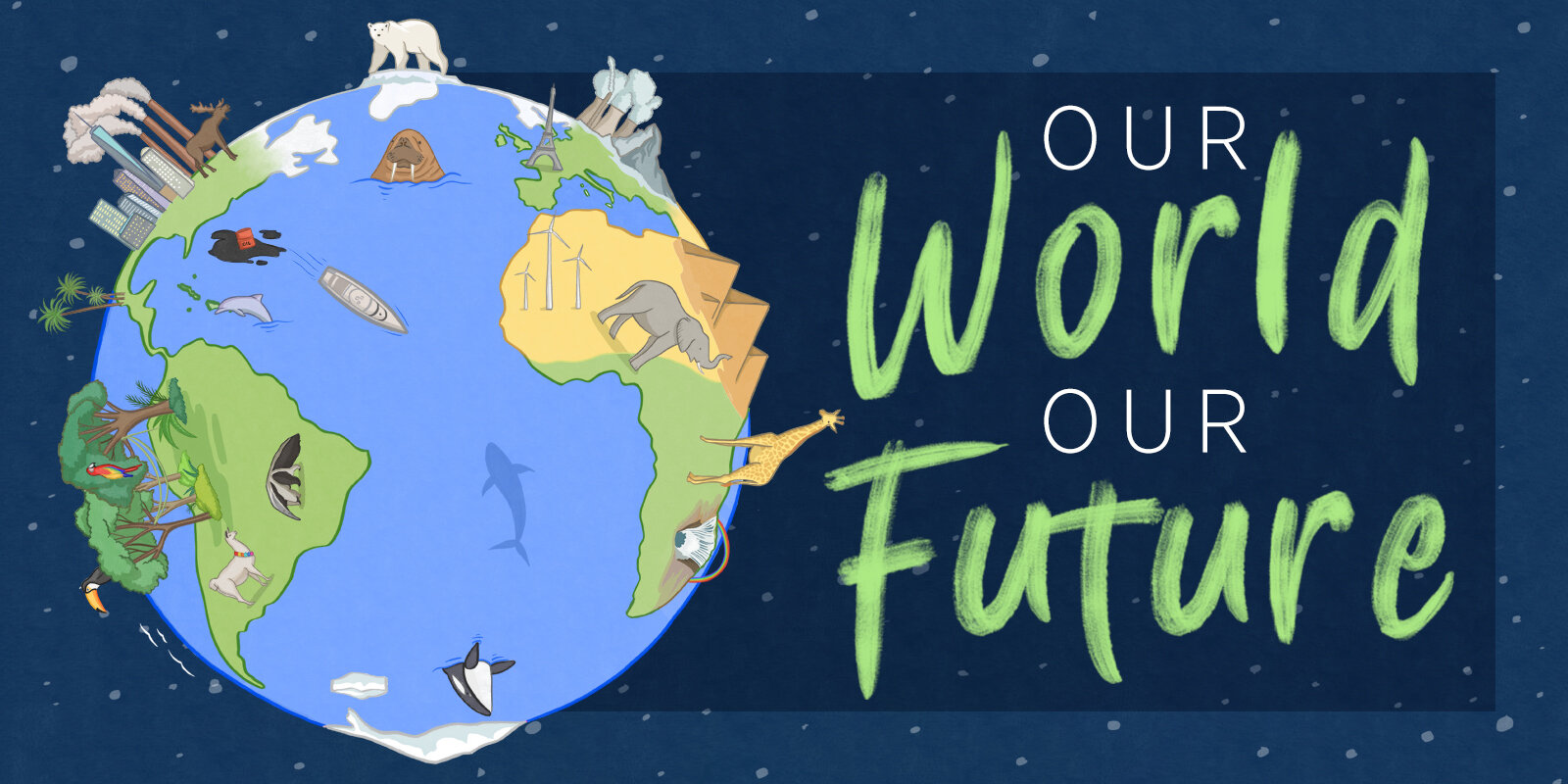Too small to make a difference? Teaching climate change in primary schools
It’s been hard to escape the talk of climate change over the past few weeks. But then that’s part of the point, as we’re finally realising that climate change itself is inescapable.
For the adults among us, climate change is something that’s been around for a while, that’s been taught in the background, but that hasn’t (for most) felt like a crisis until now. But what about those who are growing up in a world where it’s an urgent, immediate issue from the get-go?
How can we teach climate change to children in a way that feels productive, and not terrifying?
Back in March our Creative Director Abi began working with a group of primary school teachers, environment experts and some of our most experienced drama facilitators to answer this exact question. What they came up with was Our World Our Future, a drama-based workshop and performance for the whole school.
Abi explains the impetus behind the workshop’s creation: “This is their world and this is their future. We need to be developing a generation of children who understand the impact their actions can have on the world both positively and negatively. And the workshop is very much about how we can encourage children to make positive choices about their behaviour, so that later on they don’t need to undo learned behaviours.”
The important thing is that children feel some autonomy and power, and that with all the scary stuff that is being said, they can feel proactive about how they can change the situation.”
During the workshop children work class-by-class from Reception to Year 6, with each class focusing on a different topic relating to the environment such as the Arctic and renewable energy, or plastics and the ocean. But it’s not just about the topic, but also about empowering children to have their own opinions and take ownership of what they can do to help.
Each session focuses on “the idea of the ‘I’, ‘we’, ‘you’ - what they can do as an individual, and what they can achieve as part of a community.”
Abi comments on the recent surge in interest, which happened after the workshop was already being made. “It’s interesting how the way things are reported or spoken about affects how we see it, but the real change is going to come around with us starting to embrace what we need to do - how we can actually take care of nature.”
In terms of how Our World Our Future works in a primary school context: “We tried to choose topics that are age-appropriate and that children can get a basic understanding of. So we’re looking at the bees with Reception and Year 1, which is something that they can enjoy and that is accessible to them. We’re trying to choose topics that are relevant to their lives.
“Year 4 are doing rainforests and Year 6 look at the Arctic and ice caps melting, which we’ve also put together with the problem of loss of habitat and sea levels rising which has an effect all over the world. We use the Artic to talk about renewables. Now of course children aren’t making the choice of whether their house uses renewable energy or not, but giving them that information is creating citizens of the future. Hopefully as they get older they will be able to make choices that we didn’t use to make because they know more about it.”
A lot of different sources have provided inspiration for the workshop, including ones that you can use in your own classroom. One of these is the Story of Stuff, which was a key inspiration behind Year 3’s topic that focuses on waste. As Abi explains, “We live in a world where we’re used to getting new stuff and clothes all the time because it’s cheap. Children aren’t necessarily making the choices of where they get their clothes from, but the fundamental thing is that we do need to consume less. Trying to create a generation of children who understand that their actions have an impact on the world is important.”
Other sources of inspiration include The Great Kapok Tree by Lynne Cherry and The Lorax by Dr. Seuss. “What we’ve done is use drama to explore and present the problem. And then literature has been interwoven to illustrate the problem or to illustrate ways to deal with that problem. We’re very much using sections of literature out of context to illustrate the issues. There is even a section from ‘The Ancient Mariner’ by Coleridge.
“We’ve used poems from UnBEEleivables by Douglas Florian, which is a whole book about bees and the bee colony and the different jobs that bees do. Again, the poems aren’t about the problem of the disappearance of bees - instead we’re showing what the bees do and then using other drama techniques to illustrate the problem.”
As for what children will get out of the workshop, “I really hope that they will feel that they’ve had fun, but they will also feel an urgency to be a part of this change.
“Drama and theatre are a brilliant way of reflecting society back to itself and that’s what we’re trying to do. The difficult balance is to talk about a really serious problem and for children not to feel downhearted by it, but instead to feel invigorated and that they are able to take part in making a more positive future for themselves.”
Our World Our Future is available from June 3rd 2019, World Environment Day, and throughout the year. Get in touch if you’d like to enquiry about the workshop for your school.
- Rachel

